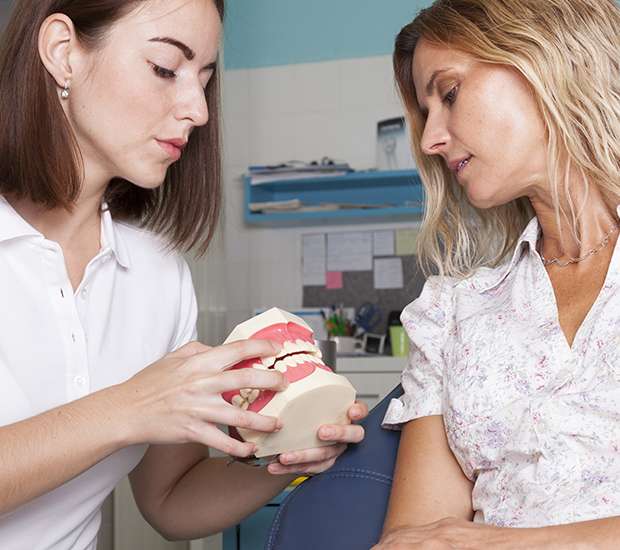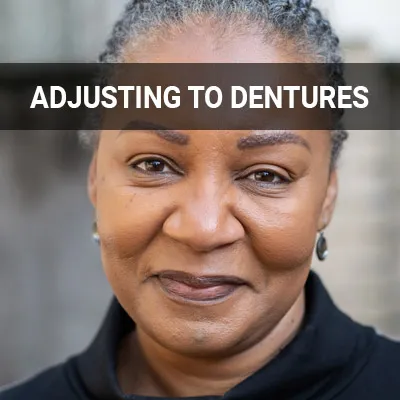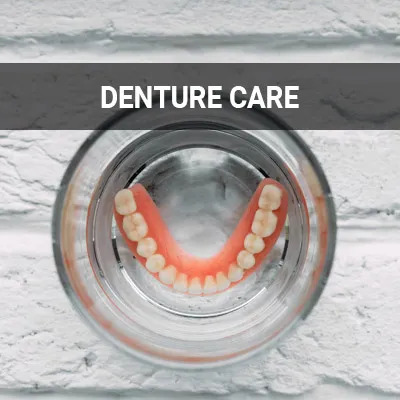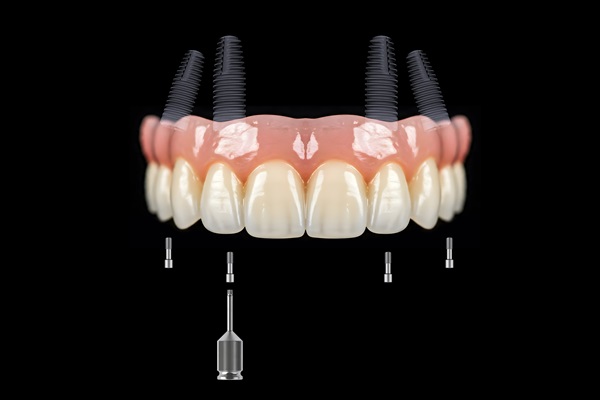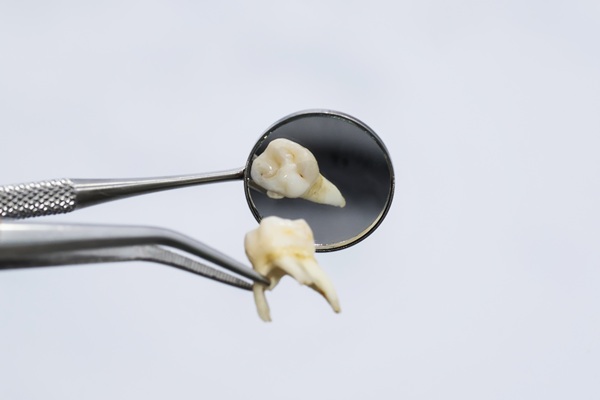What to Expect When Getting Dentures Brooklyn, NY
Preparation before getting dentures includes shopping for certain types of foods and products and reading about the expected lifestyle after dentures. Lifestyle after dentures brings about several changes, but with the right information and preparation, it can be a relatively smooth transition. Dentures are a popular, efficient way to replace missing teeth and to bring back a smile. Most denture treatment plans have certain provisions in case the dentures need adjustments, such as reshaping or relining.
Tips for preparation before getting dentures are available at Nostrand Dental in Brooklyn and the surrounding area. The biggest changes occur in the first few days after the procedure. It is critical to stock up on soft foods with the texture of mashed potatoes and ice cream.
Increased salivation is common with new dentures, as are sore spots. Rinsing the mouth with warm salt water helps. Our office is here to help if any soreness or pain persists. After about a month, your food consumption and lifestyle should mostly return to how it was pre-dentures. Call us at (718) 513-9685 to make an appointment and learn how to prepare for your new dentures.
Foods to Buy Before the Procedure
Wearing dentures for the first time can take some time to get used to. New denture wearers should be careful with their food choices for a few weeks to ensure that their mouths adjust well. Initially, we recommend sticking with liquids and soft foods such as soups, smoothies, puddings, applesauce, and other liquefied food.
When people are ready to move on to solid foods, they should still avoid hard foods that can dislodge dentures or damage them. WebMD recommends cutting foods into small portions and chewing on both sides of the mouth rather than the front teeth. Avoid smoking and drinking staining foods and drinks since dentures can become discolored like natural teeth.
“New denture wearers should be careful with their food choices for a few weeks to ensure that their mouths adjust well.”
Lifestyle Changes To Expect
In the long term, a patient's lifestyle should be the same before and after dentures. If anything, lifestyle can improve after dentures because of increased confidence and oral function. At the very least, there will be decreased pain and discomfort associated with dental conditions that are often the reason for needing dentures.
The greatest changes typically come during the first month as patients adjust to eating softer foods. As the weeks pass, they can reintroduce solid foods that are a bit harder to chew. Some people can eat steak cut into small pieces a few days or a week after getting dentures, but each person is different. It is a good idea to test out foods before reintroducing an entire diet.
“The greatest changes typically come during the first month as patients adjust to eating softer foods.”
Keeping Dentures Clean
Caring for removable dentures is a daily task that will help keep them looking, feeling, and functioning well. People should purchase a nonabrasive toothbrush before getting dentures. Along with always handling them with care, the Mayo Clinic recommends rinsing dentures after eating to remove any food particles and then cleaning one's mouth with a soft toothbrush or cloth before replacing them.
Denture-wearers should also soak their dentures overnight. Moisture helps dentures retain their shape, so it is essential to soak them overnight. People should purchase a mild solution to soak their dentures in if they choose not to use water. Before placing dentures in the mouth, people should rinse them thoroughly, especially after using a soaking solution. This step is necessary to remove any harmful chemicals used in the solution.
“Caring for removable dentures is a daily task that will help keep them looking, feeling, and functioning well.”
Check out what others are saying about our dental services on Yelp: What to Expect When Getting Dentures in Brooklyn, NY
What to Expect Before and After
Before the placement procedure, patients can expect a full, thorough rundown of the entire treatment process. We have found that it eases panic levels and induces comfort before and during the procedure. We will inform the patient about the procedure, follow-up care, and any diet and lifestyle changes that will ensue.
Following the procedure, it typically takes patients an average of 30 days to fully adjust to their new dentures. Patients who exercise all pertinent measures and instructions may reduce that time. We will set the follow-up appointments and routinely check the progress of the patient's healing as well as make any alterations as needed. In general, patients should be back to their normal eating and lifestyle after a few weeks.
“We will inform the patient about the procedure, follow-up care, and any diet and lifestyle changes that will ensue.”
Questions Answered on This Page
Q. What foods should people buy to prepare for dentures?
Q. How should people clean their dentures?
Q. What changes can one expect after getting dentures?
Q. What can I expect before and after denture placement?
People Also Ask
Q. What happens during a denture fitting appointment?
Q. How should people take care of their dentures while traveling?
Q. What should I do if my dentures start to feel uncomfortable?
Q. What is the process of getting partial dentures?
Frequently Asked Questions
Q. Which type of cleanser is best for my dentures?
A. It depends on your preferences, but many people opt to soak their dentures in a solution. It reduces bacteria, which addresses or prevents odor issues. Other types of cleansers require brushing, which takes more time and attention than a solution.
Q. Can I use toothpaste to care for my dentures?
A. As WebMD explains, traditional toothpaste is too abrasive for dentures. WebMD adds that products with the American Dental Association (ADA) Seal of Acceptance are a great and safe choice. We can go over possible cleaning solutions to use during an appointment.
Q. Will my mouth feel tired in my lifestyle after dentures?
A. Patients' mouths may feel tired because dentures can seem quite heavy and hard at first. The more they wear them, the quicker their mouths will adjust. If they need to start by wearing them for a few hours daily and work their way up, they can do so. If serious issues with pain or soreness persist, you may need an adjustment.
Q. What tips should my family members know about my preparation before getting dentures?
A. If the patient lives in a household with others, it helps if they already eat the same things that the patient does. If possible, the patient, and those whom they live with, can go shopping together for food and dental products such as dental brushes, cleansers, and adhesives.
Q. Will my speech be affected by wearing dentures?
A. Patients may feel like their speech is hard to understand. Chances are, it is not. This effect is exaggerated because dentures affect the vibrations and sound volume traveling to one's ears. Adhesives can keep dentures from "kicking out" while talking. It is encouraged for patients to practice reading out loud so they can get used to speaking with their dentures.
Q. Should I prepare to wear dentures 24 hours a day?
A. Possibly, but only to start. Dentists may advise 24/7 wearing as the quickest route to assess whether the dentures need adjustments. After that, dentures should be removed when going to sleep, as it enables the patient's gums to rest.
Q. What should I do if I produce too much saliva with dentures?
A. One option is to rest the gums by taking dentures out. Alternatively, try drinking more water. A third approach is to suck on sugar-free lozenges.
Denture Terminology
Call Us Today
Taking the right preparations before receiving dentures can aid the adjustment process to dentures. Our team at Nostrand Dental can help. Call us today at 718-513-9685 to learn more about our services or schedule an appointment.
Helpful Related Links
- American Dental Association (ADA). Glossary of Dental Clinical Terms. 2024
- American Academy of Cosmetic Dentistry® (AACD). Home Page. 2024
- WebMD. WebMD’s Oral Care Guide. 2024
About our business, license, and website security
- Nostrand Dental was established in 1998.
- We accept the following payment methods: Cash, CareCredit, Check, Discover, MasterCard, and Visa
- We serve patients from the following counties: Kings County, New York County, Richmond County, Queens County, and Nassau County
- We serve patients from the following cities: Brooklyn, Manhattan, Queens, Staten Island, and Long Island
- NY (License #46702). View License Information and Specifics
- National Provider Identifier Database (1457434540). View NPI Registry Information
- Norton Safe Web. View Details
- Trend Micro Site Safety Center. View Details
Back to top of What to Expect When Getting Dentures
